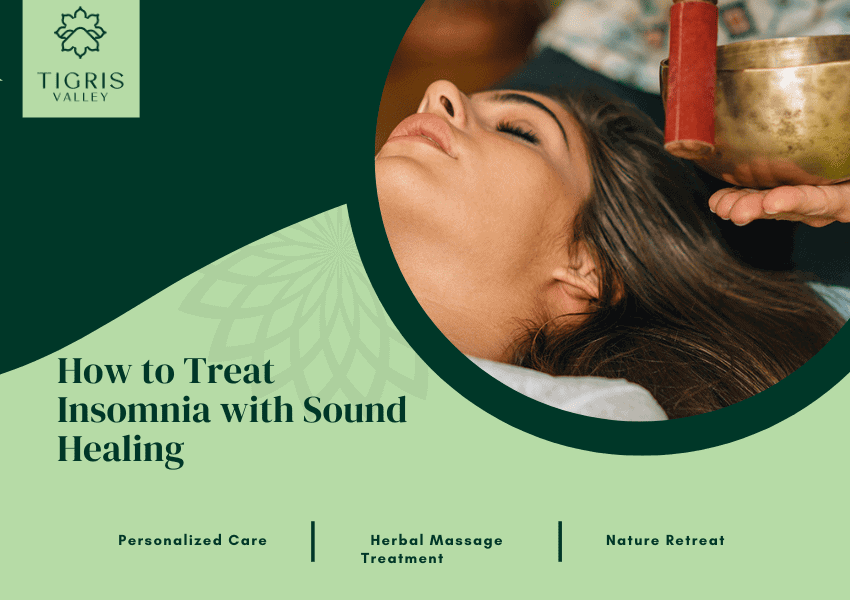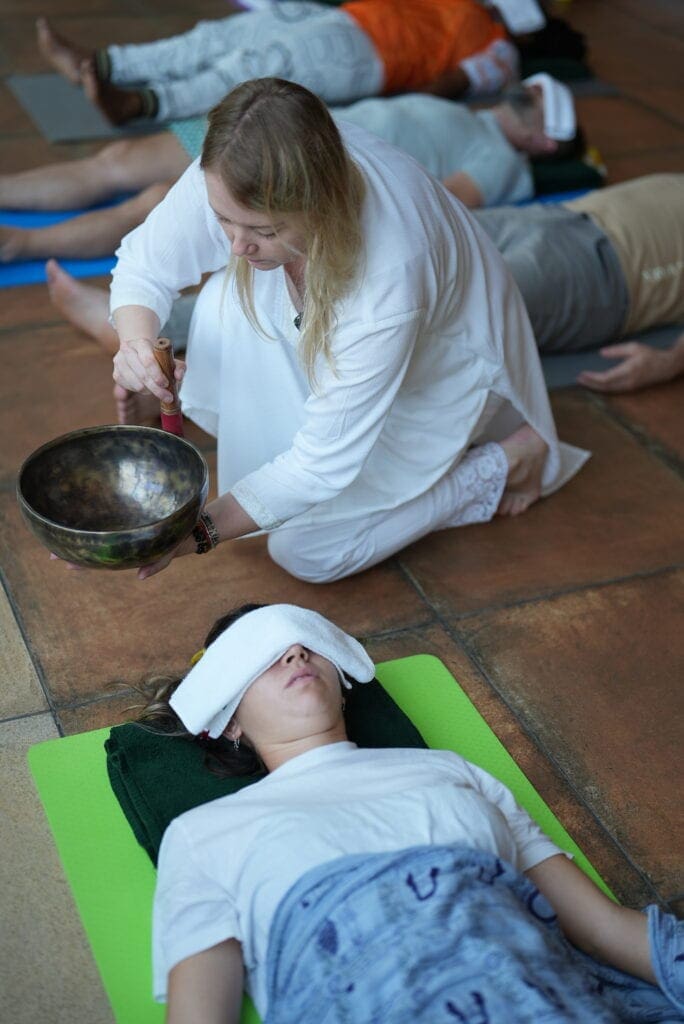
Insomnia is a common sleep disorder. With insomnia, you may have trouble falling asleep, staying asleep, or getting good-quality sleep. This happens even if you have the time and the right environment to sleep well. Insomnia can get in the way of your daily activities and may make you feel sleepy during the day.
Quality sleep plays an important role in overall well-being. Not getting the sleep you need regularly can have a pretty big impact on mental and physical health, not to mention quality of life.
Among sleep disorders, insomnia is the most common.
Insomnia therapies at Tigris Valley aim to improve sleep quality and address underlying issues. Utilizing natural methods such as herbal remedies, yoga, and meditation, these therapies aim to relax the mind and body, promoting restful sleep. Personalized insomnia treatment plans may also include dietary guidance and stress management techniques. By focusing on overall well-being, Tigris Valley provides effective solutions for those struggling with insomnia.

What is the cause of insomnia?
It’s not always clear what triggers insomnia, but it’s often associated with:
✦ Stress and anxiety
✦ A poor sleeping environment – such as an uncomfortable bed, or a bedroom that’s too light, noisy, hot, or cold
✦ Lifestyle factors – such as jet lag, shift work, or drinking alcohol or caffeine before going to bed
✦ Mental health conditions – such as depression and schizophrenia
✦ Physical health conditions – such as heart problems, other sleep disorders and long-term pain
✦ Certain medicines – such as some antidepressants, epilepsy medicines, and steroid medication.
✦ Family history (genetics) – sleep traits, including insomnia, seem to run seem to run in families.
✦ Brain activity differences – people with insomnia can have more active brains or brain chemistry differences that affect their ability to sleep.
When insomnia is severe or lasts a long time it causes sleep deprivation.
A major concern with sleep deprivation is daytime sleepiness, which can be dangerous when you are driving or doing other tasks that require you to be alert and attentive.
Sleep deprivation can also increase the risk of certain conditions :
✦ Depression
✦ Anxiety
✦ High blood pressure (hypertension)
✦Heart attack
✦ Stroke
✦ Obstructive sleep apnea
✦ Type 2 diabetes
✦ Obesity
✦ Conditions that involve psychosis.
Singing Tibetan Bowls Healing approach is one of the approaches for non – medication based treatment.
The scientific basis of sound therapy lies in the understanding of the brain’s response to auditory stimuli and its potential for inducing relaxation and positive physiological changes. Several key concepts underlie the effectiveness of sound therapy in promoting relaxation and alleviating insomnia.
Through our sleeping therapy treatment , the mechanism of brainwave entrainment, where the brain synchronizes its electrical activity with external auditory stimuli, is pivotal in this process. By introducing specific frequencies, sound therapy aims to guide the brain into patterns associated with deep sleep, notably delta waves, providing a potential remedy for insomnia.

Brainwave entrainment is a process in which the brain synchronizes its electrical activity to an external auditory stimulus. The brain exhibits different types of brainwaves depending on its current state. Such as being awake, asleep, or in deep relaxation.
By introducing an external auditory stimulus with a specific frequency, the brain can be encouraged to match its own frequency. This results in a shift in brainwave patterns. For insomnia treatment , sound therapy aims to induce brainwave patterns associated with deep sleep, such as delta waves.
Different studies have proven how Tibetan singing bowls can quieten the mind chatter and flip the brain into calmness by changing our brain waves.
They can take us into a deep sleep where our senses wind down and cut us off from the outside world. Using these bowls before sleep can also slow down your heartbeat and breathing rate to naturally prepare you for sleep.
An added bonus is you’ll wake up refreshed instead of groggy or frustrated after having a hectic yesterday.
But that’s not all singing bowls can do!
They can also put a stop to sleep problems like nightmares or waking in the middle of the night by leading your brain into the sleep wave state.
Incorporating sound therapy into your daily routine can be an effective approach to managing insomnia, can help with stress , anxiety, overthinking and even pain . That’s why it’s often used in detox centers to rehabilitate patients dealing with all sorts of problems.
At Tigris Valley Ayurvedic Wellness Retreat in Kerala the incorporation of sound therapy aligns seamlessly with the principles of Ayurveda, offering a holistic approach to rejuvenation. By immersing oneself in the therapeutic sounds of Tibetan singing bowls, individuals can experience a profound sense of balance, promoting a harmonious connection between mind, body, and spirit. As a time-tested practice, sound therapy becomes a cornerstone in the retreat’s commitment to providing a serene and transformative wellness experience.
Agnieszka Krakowska